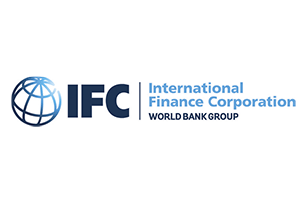
The International Finance Corporation and Netherlands’ Ministry of Economic Affairs have entered into a partnership to develop innovative solutions for efficient agricultural and industrial water use in India. While the IFC will primarily bring funding and technical assistance to the partnership, the Ministry of Economic Affairs will bring expertise in the water sector. With over 80% of India’s fresh water used in the agricultural sector, over-exploitation of water sources, and contamination, the country faces a water crisis for drinking water, agriculture, and industrial use. Program interventions will focus on reducing water waste and improving quality and access across agricultural supply chains including sugar, cotton, and dairy. The organizations plan to involve the private sector in order to leverage the most effective technologies, systems, and capital.
The FINANCIAL — New Delhi, India, June 7, 2011—IFC, a member of the World Bank Group, and the Netherlands will engage and jointly develop innovative solutions that promote efficient agricultural and industrial water use in India. The partnership between IFC and the Netherlands’ Ministry of Economic Affairs, Agriculture, and Innovation will allow IFC to support private sector investments through its financing and advisory services. The Netherlands will bring to bear its global leadership in the water sector to assist program implementation.
India faces a rapidly evolving water crisis. Over 80 percent of the country’s fresh water is consumed by the agricultural sector, including widespread ground water over-exploitation and continuing impacts of climate change. Access to safe and sufficient drinking water remains a challenge for many parts of rural and urban populations. Significant efforts are required to meet future demand in a sustainable and equitable manner.
“A programmatic approach toward implementing initiatives across the water value chain, such as agriculture water efficiency, industrial water use and reuse, potable water supply, policy and institutional framework reform, supported by Dutch water expertise, will help in creating water efficient economic growth,” said Marten van den Berg, Deputy Director-General International Relations, Ministry of Economic Affairs, Agriculture and Innovation, The Netherlands.
Specific program interventions will include improving water efficiency in agricultural commodity supply chains such as sugar, cotton, rice, dairy, and horticulture; water-consuming industries, and improving water quality and access to potable water.
“Water is a complex and challenging development priority for India. This partnership with the Netherlands translates into developing integrated end-to-end approaches to address water access, efficiency, and quality-related challenges,” said Anil Sinha, IFC Advisory Services General Manager for South Asia. “By reducing water waste and improving quality and access, the project will benefit industry, farmers, and households.”
Private sector can provide technology, systems and capital to address water challenges. As part of this joint action, consultations with stakeholder groups through dialogues and knowledge events will help develop sustainable solutions. Partnerships with leading actors in the agribusiness supply chain, technology providers, and financial institutions are likely to shape implementation initiatives.
